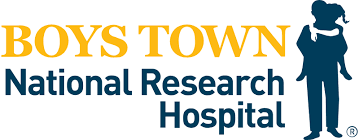Boys Town, Nebraska, USA: October 9-11, 2024

Three-day Brainstorm training, MEG- and EEG-oriented.
During the first two days, participants will process an MEG/EEG dataset to learn and explore Brainstorm features. On the last day, participants are encouraged to bring their own data, which we will review in small groups.
General information
| Where | Boys Town National Research Hospital |
| When | October 9-11, 2024, 9:00-16:30 |
| Registration | Contact the organizers |
| Organizers | Elizabeth Heinrichs-Graham (Boys Town National Research Hospital, USA) |
| Instructors | Sylvain Baillet and Raymundo Cassani (Montreal Neurological Institute / McGill, Canada) |
| Audience | Users interested in analyzing MEG/EEG recordings using Brainstorm. Some experience with MEG/EEG is recommended. Teaching in English. Participants are required to have an academic affiliation |
| Slides | Intro slides | Lecture slides | Walkthrough | Survey |
Requirements
In order to make the workshop as efficient as possible, we ask all the attendees to: download, install and test the software and download the workshop dataset on their laptops prior to the workshop.
Installing Brainstorm
Please read carefully the following instructions on:
preparing your laptop for the training
Workshop dataset
The workshop dataset is based on the Frontiers Research Topic From raw MEG/EEG to publication: a collection of articles reporting the analysis of the same multimodal dataset using different software environments. During this workshop, first we will go through the main processing steps using data from one of the participants following the processing pipeline described in the article MEG/EEG Group Analysis With Brainstorm and the corresponding online tutorial. In a second part, we will use pre-processed data from two participants to show the steps for group analysis.
Once you have successfully installed and tested Brainstorm (see previous section), proceed to download the dataset for the workshop.
Download the tutorial dataset: ds000117_S1R1.zip (820 MB):
Download linkUnzip the downloaded file on your desktop: it will create a new folder named ds000117_S1R1. It contains raw data for one participant, one run.
Download the tutorial dataset: BoysTown_S1S2_R1R2.zip (950 MB):
Download linkUnzip the downloaded file on your desktop: it will create a new folder named BoysTown_S1S2_R1R2. It contains pre-processed data for two participants, two runs each.
- Final check: after following the steps above, you should have 4 folders on your desktop:
brainstorm3: the software folder, containing the source code and the compiled executable
brainstorm_db: your Brainstorm database (which should be empty for now)
ds000117_S1R1: Dataset 1 used during the workshop session
BoysTown_S1S2_R1R2: Dataset 2 used during the workshop session
Program
To be defined
Day 1
| 08:30-09:00 | Onsite assistance in installing the material for the training session |
| 09:00-09:30 | Biological origins of MEG and EEG (lecture S. Baillet) |
| 09:30-10:00 | Introduction to Brainstorm (lecture R. Cassani) |
| 10:100-12:00 | Loading anatomy and recordings Brainstorm database Set anatomy Review RAW recordings Events and event functions Frequency filters |
| 12:00-13:00 | Lunch |
| 13:00-13:45 | Pre-processing Artifact detection Artifact correction with ICA and SSP |
| 13:45-14:45 | Epoching and Importing Import epochs and sensor averages Visualization of epochs/trials Average trials Statistics, sensor level |
| 14:45-15:15 | Spectral and time-frequency analysis of MEG/EEG signals (lecture S. Baillet) |
| 15:15-15:45 | Time-frequency analysis Time-frequency representation of EEG/MEG signals |
| 15:45-16:15 | Brainstorm beyond the GUI Interaction with other toolboxes: FieldTrip, MNE-Python, EEGLAB, SPM Plugins: available plugins GitHub: repo and collaboration |
| 16:15-16:30 | Day 1 wrap-up |
Day 2
| 08:30-09:00 | Onsite assistance, materials, concepts, day 1 steps |
| 09:00-09:45 | Source modelling (Lecture S. Baillet) |
| 09:45-11:15 | Sources estimation Forward model (aka Head model) Noise covariance matrix Source estimation |
| 11:15-12:00 | Sources analysis Cortex parcellations: Atlases and Scouts Statistics, source level |
| 12:00-13:00 | Lunch |
| 13:00-13:30 | Sharing Protocols Exporting protocols Importing protocols Load provided protocol: 2 participants, 2 runs each |
| 13:30-14:15 | Subject level analysis Subject averages (sensors, sources, and time-frequency) Within subject differences |
| 14:15-14:45 | Group level analysis (Lecture) |
| 14:45-15:45 | Group level analysis Preparing source subject-averages Co-registration to default anatomy Group averages |
| 15:45-16:15 | Brainstorm beyond the GUI Exporting data Find processes Scripting |
| 16:15-16:30 | Day 2 wrap-up |
Day 3
| 09:00-09:45 | Connectivity & resting-state & evoked response (Lecture S. Baillet) |
| 09:45-10:15 | Connectivity Functional connectivity |
| 10:15-12:00 | Requests and Participants working with their own data |
| 12:00-13:00 | Lunch |
| 12:00-15:30 | Participants working with their own data (cont.) |
| 16:15-16:30 | Wrap-up |
Bring your own data
The last session will be mostly dedicated to addressing participants' requests. We encourage you to bring in your own sample of MEG (or EEG) data that you would be interested in processing with Brainstorm. We may ask that you pair with other attendees for logistics purposes.
The file formats that can be read by Brainstorm are listed on the Introduction page. Please contact us in advance if you are not sure your dataset can be imported in Brainstorm. If you do not have data available, you may to use data available in our server for other tutorials.
We provide a detailed step-by-step walkthrough of the data analyses performed at the training.
Troubleshooting
For any technical problem, please contact Raymundo Cassani ( raymundo.cassani@mcgill.ca )